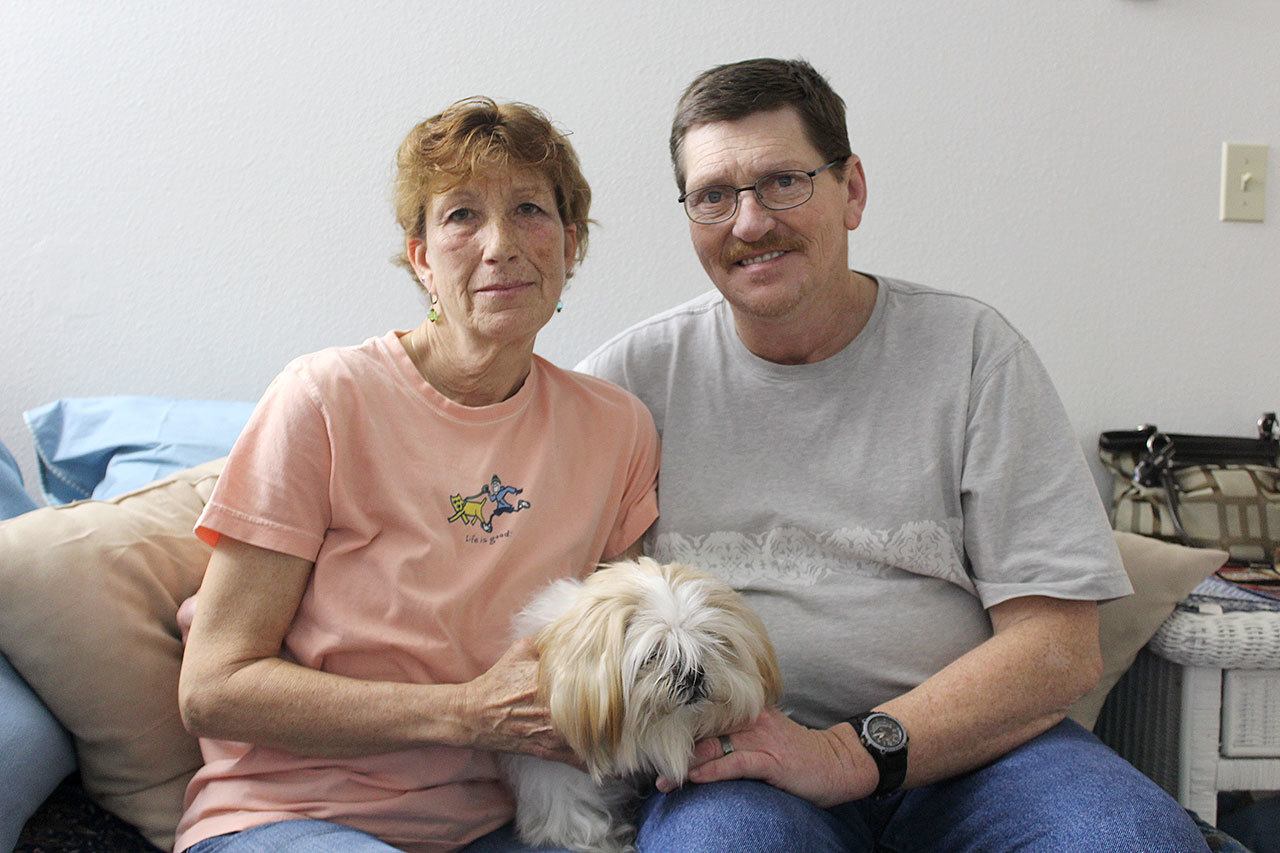Dave and Robin Myers know all too well the feeling of life interrupted.
“You just don’t plan to be homeless. It’s devastating,” Robin Myers says.
The couple, married for 24 years and in their mid-50s, have spoken about the stigma, shame and humiliation associated with being homeless at several community meetings planning The Haven, Oak Harbor’s overnight shelter opening in April.
“I was embarrassed the first time we went to the soup kitchen,” Dave Myers told a gathering at First United Methodist Church. “But then this one lady who works there told me, ‘We’re all a paycheck, a fire, an earthquake (away) from being you.’ That has stayed with me. I know nobody is excluded from being homeless.”
Last spring, the Myers suddenly found themselves without shelter and a drained bank account. Whidbey Island relatives had invited them to move from Wyoming to live with them but then abruptly changed their mind.
“We got rid of everything. ‘Just bring your bed, dresser and clothes’, that’s what they said,” Dave Myers recalled of the generous offer. “So we didn’t worry about it.”
After six weeks sleeping in their van, eating at soup kitchens and spending time at libraries and the Oak Harbor drop-in center, Spin Cafe, they were able to stay at House of Hope. The transitional housing, based in Langley, is managed by Whidbey Homeless Coalition. There, a mentor helped them look for a permanent place and hooked them up with various charitable organizations.
While numerous housing complexes accept low-income tenants, the Myers said they found the system of actually getting into an apartment cumbersome and costly.
“You have to go to each individual complex apartment every month and make sure you’re still on the list,” Dave said. “We spent a lot of money on gas doing that. We checked Oak Harbor, Coupeville, even Mount Vernon.”
In order to get housing and government help, cell phones, even email addresses, seem indispensable if you’re homeless these days, a fact the couple quickly learned.
The Myers pay $660 a month at their Coupeville apartment for two bedrooms, bathroom, living room, kitchen and a rear window view into the woods. Other expenses include utilities, cell phone, paying off their used pick-up truck, gas, car insurance and prescriptions.
They are eligible for food benefits and qualify for health insurance under the Affordable Care Act and Washington state Medicaid.
Dave uses an insulin pump. He’s suffered many complications from his diabetes, including two heart attacks, and receives disability checks. Robin is still recovering from a bad fall that fractured her pelvis in several places. During treatment, doctors discovered her bones are rapidly thinning from osteoporosis so she’s also now eligible for disability.
“I’ve worked since I was 12 years old,” she says “We’ve never had to ask for help before.”
“It’s very humbling, it’s degrading.”
But when they did put pride aside, help came around.
The Lions Club paid for Dave to get a new pair of glasses, Friends of Freeland gave vouchers for gasoline, Helping Hands of South Whidbey helped cover bills, and they found warm coats at Oak Harbor’s Garage of Blessings, which gives away clothing and other items.
At the planning meetings for The Haven, Dave Myers encouraged people to talk up the need for the shelter. “Go out in the public and open up communication, talk to the person in line with you at the store.
“Because there will be people in the community that won’t stand behind having a homeless center for one reason or another,” he continued.
“It wasn’t that long ago that my wife and I were homeless. But I can stand here today and say we have a place to live.”


